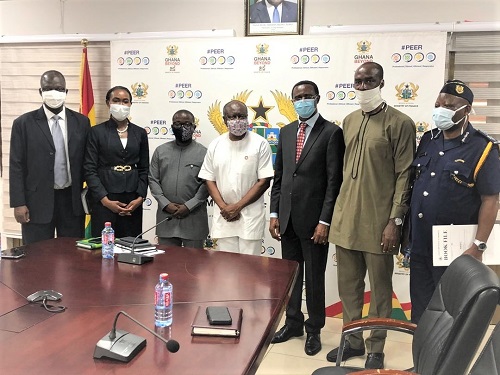
To root out corrupt revenue collection officials in the country, the Ghana Revenue Authority (GRA) and Ministry of Finance have established a Tax Audit and Quality Assurance Unit.
A bold move, according to some industry voices, the new department will deal with all complaints of corruption and ensure that the public gets redress for any concern brought before it. It will also serve as the auditing arm of the GRA and re-audit the work of officers to ensure they have not shortchanged government through their actions, knowingly or unknowingly.
Speaking at the new unit’s inauguration under the GRA, the Commissioner General of GRA, Ammishaddai Owusu-Amoah said: “For every tax authority there are a lot of complaints that we normally receive: complaints about corruption; tax that is not rightly calculated; understanding on how we arrived at a certain tax that needs to be paid; and also the case of perception of corruption, or lack of integrity for a taxman.
“Therefore, as an authority, if you want to deal with the issue of corruption and integrity it requires a definite and purposeful act to be able to move ahead. So, the GRA in looking at all these decided to come up with a definite action to deal with the issue: this is the reason for the Tax Audit and Quality Assurance Unit.”
Through the establishment of this unit, Mr. Owusu-Amoah added, the authority is now setting up a centralised audit-planning process. “We will make sure that we have a centre of excellence for audit, and we will also make sure that the quality of our audit is good. This unit will be very critical for our revenue mobilisation efforts going forward,” he said.
Minister of Finance Ken Ofori-Atta commended the GRA for the move, and said it could not have come at a more appropriate time – considering the conscious efforts by government to rake in all available revenue to shore-up its coffers to run the country.
He indicated that the country’s tax to GDP ratio stands between 11-13 percent, but there is an ambitious target of hitting 20 percent that can be done if the state body responsible for tax collection is given the right human capital, backed with the requisite technology, and there is strict oversight over the operations of officers.
For him, the unit will not only keep officers on their toes but also ensure that all citizens declare accurate tax liabilities, as the work of officers will be thoroughly scrutinised to ensure no infractions were recorded. “Once auditors know their work will be reviewed thoroughly, they will not compromise on the integrity and professionalism that is required from them,” Mr. Ofori Atta said.
Highlighting figures the nation is losing in revenue due to corruption and lack of the right technology and approach, the minister said: “In terms of our experience, you look at registration and you have up to 5 million unregistered taxpayers – both individual and corporate entities; and with filing and payments we have about GH¢400-600million in uncollected debts due to bottlenecks, acts of transparency and inconsistent application of debt-recovery actions.
“On the compliance and debt management side, there’s at least GH¢300-400million of missed infractions and post-clearance audit due to absence of best practices in the case management system. On the Customs side, we have some 30 percent deviation on the targets due to lack of clear tracking and manual-based practices which are being changed.”
Source:thebftonline







.jpg)

0 Comments